“In order to cope and adapt to change, people are relying on essential elements of traditional knowledge, cultural values and customary institutions for relief and support. These are critical building blocks of integrated solutions needed at this time of local-global change”, states a new policy brief released by the Scientific Advisory Board of the UN Secretary General today.
The brief, entitled “Indigenous and Local Knowledge(s) and Science(s) for Sustainable Development”, responds to the Secretary General’s request to help ensure that decisions are informed by the best available knowledge, and to promote greater commitment to recognizing indigenous and local knowledge (ILK) in sustainable development. The Board recognizes that “Inasmuch as biological diversity underpins the resilience of ecosystems, likewise, cultural diversity underpins social resilience for sustainable development”.
Highlighting the potential of Indigenous and Local knowledge(s) in alliance with the science(s) in closing knowledge and technology gaps, poverty eradication and addressing inequalities, the brief provides concrete examples of the contributions of indigenous and local knowledge, while identifying challenges that must be overcome. The Policy Brief includes recommendations for building a partnership of Indigenous and Local Knowledge(s) and Science(s) to diversify, popularize and expand the STI Agenda for Sustainable Development.
This policy Brief was released during a meeting convened by the President of UNESCO’s Executive Board, during its 200th session, where members of the Scientific Advisory Board presented their Summary Report to the UN Secretary-General.
“Indigenous and Local Knowledge(s) and Science(s) for Sustainable Development” was presented by Joji Cariño. A policy Brief on “Science and the 2030 Agenda for Sustainable Development”, also released today, was presented by Jörg Hacker.
Susan Avery presented The Future of Scientific Advice to the United Nations, A Summary Report to the Secretary-General of the United Nations from the Scientific Advisory Board.

